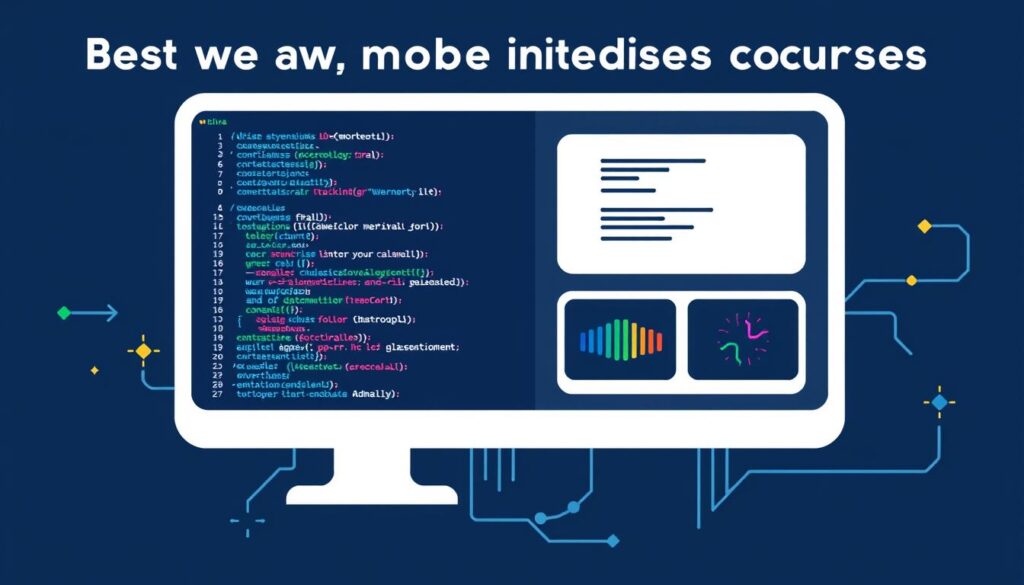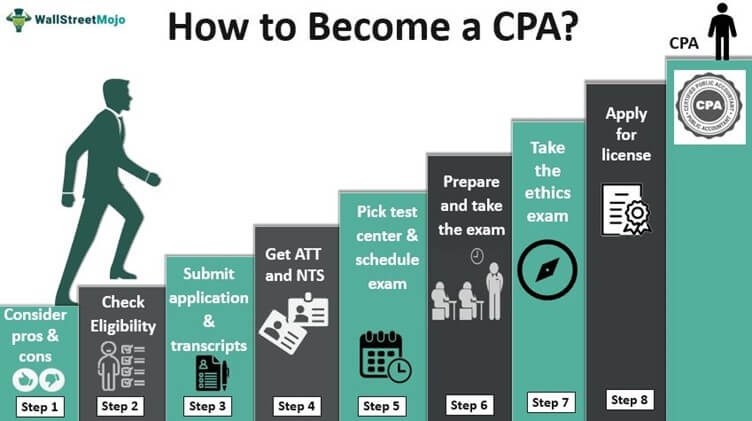Discover the Best Technology Courses for Upskilling
In today’s fast-paced digital landscape, staying ahead of the curve is crucial for career advancement. As technology continues to evolve, the demand for skilled professionals is on the rise. Upskilling through relevant technology courses can significantly enhance your career prospects.
We will explore the most valuable technology courses available today, examining various domains that are in high demand in the job market. By acquiring new skills, individuals can unlock better job opportunities, higher salaries, and career growth. Our analysis covers courses from leading universities, tech giants, and specialized platforms to help you make informed decisions about your professional development.
Key Takeaways
- Identify the most in-demand technology courses for upskilling.
- Discover how upskilling can lead to better job opportunities and career advancement.
- Explore courses from leading universities, tech giants, and specialized platforms.
- Learn which technology skills are most sought-after by employers in 2024 and beyond.
- Make informed decisions about your professional development with our comprehensive guide.
Why Technology Upskilling Is Essential in Today’s Digital Landscape
With automation and AI transforming the workplace, technology upskilling is essential for maintaining job security and fostering career growth. In today’s digital landscape, the ability to adapt and learn new technologies is crucial for professionals to stay relevant.
Companies with strong learning cultures see a 30%-50% higher engagement and retention rate according to Harvard Business Publishing and Business Insider. This statistic underscores the importance of continuous learning in enhancing not just individual professional development but also overall organizational performance.
The Growing Demand for Tech Skills Across Industries
The demand for tech skills is not limited to the tech industry alone; it’s a cross-industry necessity. As technology advances, various sectors are looking for professionals who can bridge the gap between technology and business operations. This has led to an increased demand for skills in areas such as data science, AI, and cybersecurity.
- Continuous learning in technology fields has become essential for maintaining job security in an increasingly automated workplace.
- Professionals who regularly update their technical skills are 3-4 times more likely to be considered for promotion and advancement opportunities.
How Continuous Learning Impacts Career Growth and Job Security
Continuous learning not only enhances job security but also significantly impacts career growth. Professionals who engage in ongoing learning report higher job satisfaction and typically command 15-20% higher salaries than their peers.
| Benefits of Continuous Learning | Impact on Career |
|---|---|
| Enhanced Job Security | Reduces the risk of job loss due to automation |
| Career Advancement | Increases chances of promotion and higher salaries |
| Skill Development | Provides transferable skills across industries |
“The moment you stop learning is the moment you start dying.”
By embracing a culture of continuous learning, professionals can ensure their career growth and maintain job security in a rapidly changing technological landscape.
Key Factors to Consider When Choosing Technology Courses

As you embark on your journey to upskill, it’s essential to consider several key factors when selecting a technology course. With the vast array of options available, making an informed decision can significantly impact your learning experience and career prospects.
Assessing Your Career Goals and Interests
Before diving into a technology course, it’s crucial to assess your career goals and interests. This self-evaluation helps you identify the skills you need to acquire, ensuring that your learning journey is focused and relevant. Consider what areas of technology interest you the most and how they align with your career aspirations.
Evaluating Course Credibility and Certification Value
The credibility of the course and the value of its certification are vital considerations. Studies indicate that professionals with industry-recognized certifications from reputable institutions like MIT, Stanford, Google, and IBM often have a competitive edge in the job market. Look for courses that offer recognized certifications that can enhance your career prospects.
Balancing Time Commitment and Learning Format
Balancing your time commitment and preferred learning format is crucial. We recommend assessing your available time realistically before committing to technology courses, as consistency is key to successful completion. Consider your learning style when choosing between self-paced online courses, instructor-led virtual classes, bootcamps, or traditional classroom settings. Evaluate the flexibility of the course schedule, especially if you’re balancing learning with full-time employment or other responsibilities.
- Consider the flexibility of the course schedule to ensure it aligns with your other responsibilities.
- Look for courses that offer modular learningpaths, allowing you to build skills incrementally.
- Examine the support resources available, such as mentorship, community forums, or office hours.
Data Science and Analytics Courses

With the exponential growth of data, the need for professionals who can analyze and interpret this data has become a top priority. The Bureau of Labor Statistics (BLS) reports that the number of data scientists employed is expected to grow by 27.9 percent by 2026, with the market projected to be worth USD 322.9 billion.
Top Data Science Programs and Certifications
Several institutions offer top-notch data science programs and certifications. These programs are designed to equip students with the skills required to succeed in the field. Some of the key certifications include those offered by leading universities and organizations. We’ve observed that these certifications can significantly enhance one’s career prospects.
The top data science programs cover a range of topics, from data preprocessing and visualization to machine learning and deep learning. By completing these programs, individuals can gain a comprehensive understanding of the field and develop practical skills.
Skills You’ll Develop in Data Science Courses
Data science courses are designed to help you develop a range of skills, including data analysis, machine learning, and programming. You’ll learn to work with various tools and technologies, such as Python, R, and SQL. These skills are highly valued in the industry, and having them can significantly enhance your career prospects.
Some of the key skills you’ll develop include data visualization, data mining, and statistical modeling. You’ll also learn to work with large datasets and develop predictive models.
Career Opportunities After Data Science Training
After completing data science training, you’ll have a range of career opportunities available to you. Data science graduates can pursue diverse career paths, including data scientist, data analyst, business intelligence analyst, and machine learning engineer positions. The median annual salary for data scientists in the United States currently exceeds $120,000.
Industries with the highest demand for data science professionals include finance, healthcare, e-commerce, and technology. Many data science professionals report high job satisfaction due to the intellectually stimulating nature of the work and the tangible business impact they create.
Artificial Intelligence and Machine Learning Programs

The realm of artificial intelligence and machine learning is revolutionizing industries worldwide. By enrolling in AI and ML courses, individuals can unlock opportunities in fields like autonomous vehicles, robotics, healthcare, finance, and e-commerce, among others.
Leading AI and Machine Learning Certifications
To excel in AI and ML, obtaining the right certifications is crucial. Some of the leading certifications include those in deep learning, natural language processing, and computer vision. These certifications are offered by renowned institutions and companies, providing a competitive edge in the job market.
Core Concepts Covered in AI/ML Courses
AI and ML courses cover a wide range of topics, including machine learning algorithms, neural networks, and data preprocessing. Students learn to develop and implement AI models, preparing them for real-world challenges.
Industry Applications and Career Paths
AI and ML have numerous applications across various industries. We’ve observed significant impacts in healthcare through improved diagnostic tools and personalized treatment plans. Financial services utilize ML for fraud detection and risk assessment, while retail and e-commerce sectors leverage AI for demand forecasting and customer service automation. Professionals with AI expertise can pursue career paths such as AI research scientist, machine learning engineer, NLP specialist, or AI ethics consultant.
As AI and ML continue to evolve, their applications will expand, creating new career opportunities. By understanding the core concepts and industry applications, individuals can position themselves at the forefront of this technological revolution.
Cybersecurity Training and Certifications

The rapidly changing cybersecurity landscape demands professionals who are equipped with the latest skills and knowledge. As technology advances, so do the threats to digital security, making cybersecurity training and certifications more crucial than ever.
Essential Cybersecurity Courses for Beginners and Professionals
For those looking to enter or advance in the cybersecurity field, there are numerous training programs available. These courses cover a wide range of topics, from basic security principles to advanced techniques in threat analysis and mitigation. Some of the key areas covered include:
- Understanding security frameworks and compliance regulations
- Identifying and mitigating potential security threats
- Implementing secure network architectures
- Cryptographic techniques and their applications
These courses are designed to cater to both beginners and experienced professionals, ensuring that everyone can enhance their career prospects in the cybersecurity domain.
Career Prospects in the Cybersecurity Field
The demand for cybersecurity professionals continues to outpace supply, with over 3.5 million unfilled positions projected globally through 2025. This shortage translates into excellent career opportunities for those with the right skills and certifications. Professionals in this field can expect competitive salaries, with mid-career positions ranging from $90,000 to $150,000, depending on specialization and location.
Industries such as financial services, healthcare, government, and critical infrastructure are among the highest demand sectors for cybersecurity professionals, driven by stringent regulatory requirements and the need to protect sensitive information. With the ever-evolving nature of security challenges, this field offers not only job security but also opportunities for advancement and high job satisfaction.
Cloud Computing Courses

With the cloud computing market projected to reach $2.3 trillion by 2032, professionals with cloud expertise are in high demand. The rapid expansion of the cloud market, valued at USD 587.78 billion in 2023 and growing at a CAGR of 16.5%, underscores the need for skilled professionals who can manage and optimize cloud environments.
AWS, Azure, and Google Cloud Platform Certifications
The leading cloud platforms – AWS, Azure, and Google Cloud Platform – offer various certification programs that validate an individual’s skills in cloud architecture, security, and management. These certifications are highly regarded in the industry and can significantly enhance a professional’s career prospects.
AWS Certifications demonstrate expertise in Amazon Web Services, including computing, storage, and database services. AWS Certified Solutions Architect – Associate is a popular certification among professionals looking to showcase their skills in designing and deploying scalable AWS systems.
Azure Certifications offered by Microsoft cover a range of skills, from fundamentals to expert-level knowledge in cloud services, AI, and data analytics. The Azure Administrator Associate certification is ideal for those managing Azure environments.
Google Cloud Certifications validate skills in Google Cloud technologies, including computing, data storage, and machine learning. The Google Cloud Professional Cloud Architect certification is designed for professionals who design and manage Google Cloud architectures.
How Cloud Computing Skills Enhance Your Marketability
Cloud computing skills significantly enhance your marketability across various industries. As organizations migrate their workloads to the cloud, the demand for professionals with cloud expertise continues to grow. We’ve observed that professionals with cloud computing skills command salary premiums of 15-25% compared to their peers without cloud expertise.
The versatility of cloud computing skills is evident across sectors such as healthcare, finance, retail, and manufacturing, where cloud technologies drive digital transformation initiatives. By acquiring cloud computing skills, professionals demonstrate their adaptability and forward-thinking approach, making them more attractive to potential employers.
With 94% of enterprises now using cloud services, the need for talent to manage these environments is on the rise. Investing in cloud computing courses can significantly boost your career prospects and open up new opportunities in the job market.
Project Management Certifications

As technology continues to evolve, the importance of effective project management cannot be overstated. It’s crucial for delivering projects on time, within budget, and to the required quality standards.
According to PMI research, the sectors that need project managers are projected to grow by 33%, providing approximately 22 million new employment opportunities. This growth underscores the value of project management skills in the tech industry.
PMP, PRINCE2, and Agile Certifications Compared
The most recognized project management certifications include PMP, PRINCE2, and Agile. Each has its unique strengths and is suited to different project management methodologies.
- PMP (Project Management Professional) is ideal for those looking to demonstrate their expertise in project management.
- PRINCE2 is a structured method that provides a framework for managing projects.
- Agile certifications focus on iterative and flexibleproject management approaches.
Why Project Management Skills Are Valuable in Tech
Project management skills are invaluable in the tech field because they enable professionals to bridge the gap between technical teams and business stakeholders. This improves communication and alignment, ensuring that projects meet their intended objectives.
- We’ve found that technology projects have notoriously high failure rates, with studies showing that 71% exceed budgets, timelines, or fail to meet requirements—making skilled project managers invaluable.
- Project management skills enable technology professionals to advance more quickly to leadership positions, demonstrating both technical expertise and business acumen.
- The growing complexity of technology initiatives makes strong project management capabilities increasingly essential for successful outcomes.
Web and Mobile Development Courses

Web and mobile development are at the forefront of the tech industry, with courses designed to meet this growing need. Professionals looking to upskill can choose from a variety of programs that cater to different aspects of development.
Front-End, Back-End, and Full-Stack Development Programs
Front-end development focuses on creating user interfaces and user experiences using programming languages like JavaScript, HTML/CSS, and frameworks such as React. Back-end development involves server-side logic, database integration, and API connectivity, often using languages like Python, Ruby, and Java. Full-stack development encompasses both front-end and back-end skills, making full-stack developers highly versatile.
Key Skills: Front-end developers master JavaScript and frameworks like React, while back-end developers focus on server-side languages and database management. Full-stack developers are proficient in both areas, making them valuable assets to any development team.
Mobile App Development Specializations
Mobile app development courses cover programming languages and frameworks for creating applications for iOS and Android platforms. With the increasing reliance on mobile technology, professionals with these skills are in high demand across various industries.
- We’ve analyzed the mobile development landscape and found that specialized courses typically focus on either native development (Swift for iOS, Kotlin for Android) or cross-platform frameworks like React Native and Flutter.
- Flutter has gained significant traction in recent years, with courses teaching this framework becoming increasingly popular due to its efficiency in developing applications for multiple platforms simultaneously.
- iOS development courses using Swift provide specialized knowledge for Apple’s ecosystem, which continues to command premium user demographics and higher revenue potential.
- We’ve observed that the most effective mobile development programs include instruction on user experience design principles, as mobile interfaces require particular attention to usability and engagement.
- Advanced mobile development courses now incorporate emerging technologies like augmented reality (AR), location-based services, and integration with wearable devices, reflecting the evolving mobile landscape.
Business Intelligence and Analytics Training

As organizations increasingly rely on data to drive their strategies, the demand for Business Intelligence (BI) and analytics professionals continues to grow. Business Intelligence professionals are tasked with analyzing business performance, making decisions based on data, and turning information into actionable insights. They work across departments, including finance, marketing, operations, and management, serving as crucial translators between technical data concepts and business objectives.
BI Tools and Technologies Covered in Courses
BI training programs cover a range of tools and technologies essential for data analysis and business insights. These include data visualization tools, reporting software, and analytics platforms that help professionals transform complex data into understandable and actionable information. By mastering these tools, professionals can enhance their ability to drive business outcomes through data-driven decisions.
How BI Skills Bridge Business and Technology
BI specialists bridge the gap between raw data and strategic decision-making, transforming complex information into actionable insights that drive business outcomes. With the evolving business intelligence landscape now encompassing predictive analytics and prescriptive recommendations, professionals must develop both technical proficiency and strategic business thinking to remain competitive in the field.
DevOps and Site Reliability Engineering Courses

DevOps and Site Reliability Engineering have emerged as key disciplines in the tech industry, driving the need for specialized courses. DevOps professionals are responsible for streamlining software development processes, implementing continuous integration/continuous deployment (CI/CD) pipelines, and ensuring reliable, scalable infrastructure.
DevOps Certification Options and Their Benefits
Comprehensive DevOps courses teach the cultural and organizational changes required for successful implementation, not just the technical tools. Effective DevOps training covers infrastructure as code principles using tools like Terraform, Ansible, and CloudFormation, enabling consistent, repeatable deployments.
- Infrastructure as Code (IaC): Tools like Terraform and Ansible enable teams to manage infrastructure through code, improving version control and reducing manual errors.
- CI/CD Pipelines: Courses cover tools like Jenkins, GitLab CI, and GitHub Actions, which are central to DevOps practices, automating testing, and deployment processes.
Implementing DevOps Practices in Organizations
Advanced DevOps courses now include site reliability engineering (SRE) principles, focusing on system reliability, scalability, and performance optimization. The most valuable DevOps programs include instruction on monitoring, observability, and incident response processes that ensure system health and rapid problem resolution.
By adopting DevOps practices, organizations can significantly improve their operations, enhancing collaboration between development and operations teams. This leads to faster deployment of software, improved quality, and reduced downtime.
Best Technology Courses from Leading Universities and Organizations
Top universities and industry leaders are offering cutting-edge technology courses that cater to the growing demand for skilled professionals in the digital landscape. These courses are designed to equip learners with the latest skills and knowledge required to excel in their careers.
We’ve observed a significant shift towards industry-led programs that focus on practical, job-relevant training. This shift is driven by the need for professionals who can apply their knowledge to real-world problems.
MIT, Stanford, and Harvard Tech Programs
Renowned universities like MIT, Stanford, and Harvard offer a range of technology programs that are highly regarded in the industry. These programs cover various aspects of technology, including data science, artificial intelligence, and cybersecurity.
For instance, MIT’s Computer Science and Artificial Intelligence Laboratory (CSAIL) offers courses that delve into the latest advancements in AI and machine learning. Similarly, Stanford’s Computer Science Department provides a comprehensive curriculum that includes courses on data structures, algorithms, and computer systems.
Industry-Led Courses from Google, IBM, and Microsoft
Industry leaders like Google, IBM, and Microsoft offer courses and programs that are tailored to the needs of the industry. Google’s professional certificates in areas like data analytics, UX design, and cybersecurity are highly sought after. IBM’s Data Analyst Professional Certificate covers data visualization, Python, and SQL, providing hands-on experience with industry-standard tools.
Microsoft’s learning paths and certifications offer specialized training in cloud computing, data science, and security, aligning with their widely-used enterprise technologies. These industry-led courses ensure that learners are equipped with the skills required to tackle real-world challenges.
By leveraging these technology courses and programs, individuals can enhance their learning experience and stay ahead in the competitive job market. Continuous learning is key to career growth and job security in today’s fast-paced industry.
Free vs. Paid Technology Courses: What’s the Difference?

Technology learning has become more accessible with both free and paid courses available, but understanding their differences is crucial.
Many platforms offer a range of technology courses, from introductory programming to advanced data science and web development. The choice between free and paid options depends on several factors, including the learner’s goals, budget, and preferred learning style.
Benefits of Premium Technology Courses
Premium technology courses often provide a structured learning experience with comprehensive career support. These courses are typically designed by industry experts and offer hands-on projects, quizzes, and assessments to reinforce programming skills.
Additionally, paid courses may offer personalized feedback, mentorship, and access to exclusive resources, which can be invaluable for learners seeking to advance their careers in technology.
High-Quality Free Resources for Tech Learning
While paid courses have their advantages, there are numerous high-quality free resources available for tech learning. Platforms like freeCodeCamp offer comprehensive programming curricula that have helped thousands launch successful tech careers.
Other notable free resources include MIT OpenCourseWare and Stanford Online, which provide access to world-class university courses covering computer science fundamentals and advanced topics. Major technology companies also offer free learning resources, such as Google’s Digital Garage and Microsoft Learn, providing quality instruction on their platforms and technology.
How to Make the Most of Your Technology Course Experience
We can enhance our learning experience by adopting effective strategies during technology courses. By being intentional about our learning process, we can significantly improve our ability to absorb and apply new skills.
Creating a Sustainable Learning Schedule
To get the most out of a technology course, creating a sustainable learning schedule is crucial. This involves setting realistic goals, allocating dedicated time for learning, and maintaining a consistent pace. By doing so, we can ensure that our learning is steady and effective, allowing us to absorb and retain new information better.
Effective time management also enables us to balance learning with other responsibilities, reducing the risk of burnout and maintaining our overall well-being.
Building a Portfolio While Learning
Building a portfolio while learning is a valuable strategy for demonstrating our skills to potential employers. We strongly recommend documenting our learning journey by creating a GitHub repository or personal website to showcase our projects and technical growth. By doing so, we can showcase our development skills and highlight our ability to apply theoretical knowledge in practical contexts.
- Building practical projects that solve real-world problems demonstrates our ability to apply theoretical knowledge.
- Contributing to open-source projects related to our technology focus enhances our collaboration skills.
By focusing on portfolio development and continuous learning, we can significantly enhance our career prospects in the tech industry.
Conclusion: Investing in Your Tech Future Through Continuous Learning
Embracing lifelong learning in technology is essential for staying relevant and competitive in the job market. We’ve examined how continuous learning in technology fields has become vital for career longevity in an increasingly digital economy. The technology courses outlined in this guide represent pathways to high-demand skills that can significantly enhance your career prospects and earning potential.
To maximize your career growth, we encourage you to approach technology learning as an ongoing journey rather than a destination. Combining formal education with self-directed learning and practical application creates a robust foundation for technology career advancement. By investing in your technology skills today, you prepare yourself not only for current job markets but also for emerging technologies and opportunities in the future.








